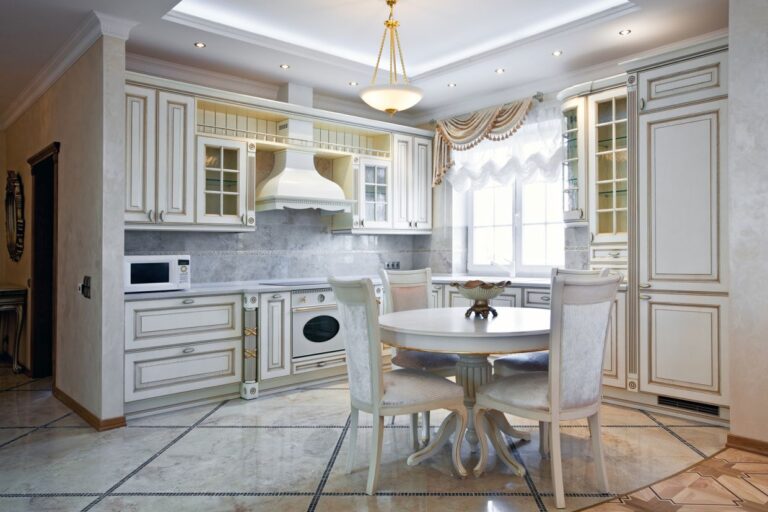Choosing the right tile for a major kitchen renovation project can be a daunting task in itself. There are many options available, from ceramic and porcelain to stone, each with their own pros and cons.
Here's a quick rundown of some kitchen tile basics to make your decision a little easier.
stone
If you're interested in giving your kitchen a more natural look and texture, stone tile may be perfect for your space. However, there are also drawbacks.
“Although it is a more expensive material, the beauty and character of natural stone makes it well worth the expense,” Westside Tile & Stone reported. “It requires special care, but if you follow the recommended steps, it will always look great. Natural stone options include marble, limestone, travertine, slate, granite (and) quartz.”
Consider granite for a low-maintenance stone kitchen floor. If you want better texture and more color options, consider marble. However, there is a stone for almost every style and need.
ceramic
Non-porcelain ceramic tiles are great for two reasons: versatility and cost-effectiveness. If practicality best suits your kitchen purpose, ceramic is rarely the wrong choice.
“The tiles are made by molding and firing selected clays and minerals to form biscuits,” reported Fitzgerald Kitchens. “These are then glazed and printed with patterns or textures before being fired again.
“They are very practical, economical and durable. The tile surface is glazed, making them hygienic and available in a variety of designs and finishes.”
porcelain
Fired at higher temperatures and forged from finer, denser clay, porcelain is a high-performance version of ceramic. It's stronger, more durable, and more stain-resistant. For high-traffic kitchens, nothing beats porcelain tile.
“In the world of flooring and wall coverings, porcelain tile is the undisputed champion when it comes to durability,” reports Express Flooring.
“The tiles are heated to extreme temperatures, resulting in tiles that are impermeable to moisture, extremely hard, durable and stain resistant. They can be installed in even the harshest locations and are resistant to cold, rain and extreme weather. ” – Atlanta Journal-Constitution/Tribune News Service


